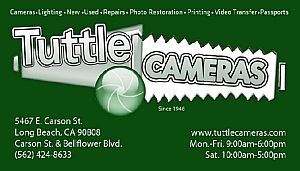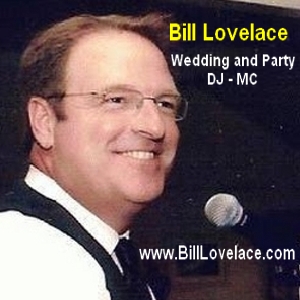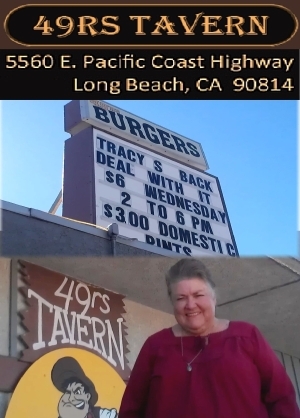The Brown Act (state law) sets minimal requirements; cities may allow the public more than the Brown Act requires, but not less. The League of CA Cities and the First Amendment Coalition both indicate in their online materials that the Brown Act (state law) doesn't require a specific minimum amount of time for public testimony on agendized items. The Metro Board of Directors (with Mayor Garcia as a member) limits public testimony on agenda items to one minute. The LB City Council currently allows three minutes per speaker (common in area cities) which Mayor Garcia sometimes shortens to two minutes or less on items drawing long lines of public speakers.
Sponsor | Sponsor |
The Brown Act lets cities schedule public testimony on agenda items either during or before it considers the specific agenda items. Some bodies do this, allowing the public to speak to agendized items at the beginning of a meeting but not as officials discuss each agenda item (unless the item is significantly changed.) Piling all public comment into a period before considering individual agenda items arguably lessens its persuasiveness.
Sponsor |  |
And the Brown Act doesn't require the Council to let the public speak on items that have already been considered in a Council committee comprised exclusively of Councilmembers if the public had an opportunity to speak to the item during the Committee meeting (if it hasn't substantially changed.) Long Beach Council committee meetings are usually held irregularly and during working hours when they are more difficult for the public to attend.
Sponsor | Sponsor |
Regarding public comments on "non-agendized items," the Brown Act only requires one period during a Council meeting. The LB City Council currently allows two such periods (one of them at the end of the Council meeting.)
Whether the LB Council's current majority would try to "streamline" its meetings by reverting to the least possible public opportunities isn't currently clear...but LBREPORT.com's Amnesia File shows that when previous Councils have changed Council meeting procedures, the results have usually reduced public rights. Some examples:
Loss of the public's right to agendize items A benign-appearing item appeared on the June 11, 1996 City Council agenda described as "changing the order of business" but it quietly erased -- "communications from the public" -- which allowed the public to put items on the Council agenda for Council voted action (even if only to "receive and file.") (The vote was 9-0: Yes: Oropeza, Lowenthal (Alan), Drummond, Clark, Robbins, Topsy-Elvord, Donelon, Kellogg, Shultz.) Restoring this public right might discourage or reduce some public comment on "non-agendized items" on which the Council can't act.
 |
Loss of a fourth Council meeting each month: The Council previously met four times per month. This ended when then-Councilwoman Jackie Kell proposed, and a Council majority agreed, to eliminate the fourth Council meeting. The action was publicly portrayed as a cost-saving measure (although Councilmembers continued to receive the same pay for attending three meetings per month as they did for attending four meetings per month.) Restoring the previous practice could shorten Council meetings by spreading items over four meeting agendas instead of piling them into three lengthier meetings.
Loss of District Council meetings: The LB City Council previously held nine Council meetings per year, one in each of LB's nine Council district. The meetings in Council districts were usually well-attended and brought Councilmembers closer to their taxpaying constituents and encouraged public participation but were eliminated by Councilmembers, also citing "cost reduction." In August 2017, at the suggestion of Councilwoman Mungo, the Council held one of its regularly scheduled meetings in the 5th Council district. As an irregular practice, it was less well attended than some expected.
Enabling short weekend notice under the pretext of greater public notice: At Mayor Foster's urging, the Council approved allowing longer eight days public notice for items agendized by individual Councilmembers, while allowing minimum Brown Act notice (effectively falling over the weekend) for items agendized by at least three Councilmembers or management or the Mayor. Foster and the Council said the short notice period was to enable swift Council action on time-pressing items, but that proviso wasn't written into the ordinance itself. As a result, the current Council and the Mayor now routinely use the short-notice procedure to add items to what they call a "supplemental" agenda, blindsiding the public and reducing the period for grassroots groups to organize on items that aren't time sensitive but could have significant impacts. .
Councilman Supernaw's memo references "closer adherence to parliamentary procedures" but doesn't specify exactly procedures he has in mind. One parliamentary procedure, not used to date by any current Councilmember, is the ability to make a motion to "continue" a lengthy meeting to another date and time; if approved by a Council majority, the floor motion ends a late night meeting on the spot. This procedure prioritizes Council convenience but can be used oppressively to wear down residents who'd waited for hours to be heard, only to be told to return at another date and time.
| Support really independent news in Long Beach. No one in LBREPORT.com's ownership, reporting or editorial decision-making has ties to incumbent Long Beach officials, development interests, advocacy groups or other special interests; or is seeking or receiving benefits of City development-related decisions; or holds a City Hall appointive position; or has contributed sums to political campaigns for Long Beach incumbents or challengers. LBREPORT.com isn't part of an out of town corporate cluster and no one its ownership, editorial or publishing decisionmaking has been part of the governing board of any City government body or other entity on whose policies we report. LBREPORT.com is reader and advertiser supported. You can help keep really independent news in LB similar to the way people support NPR and PBS stations. We're not |
blog comments powered by Disqus
Recommend LBREPORT.com to your Facebook friends:
Follow LBReport.com with:
RSS |
Contact us: mail@LBReport.com





Hardwood Floor Specialists
Call (562) 422-2800 or (714) 836-7050
